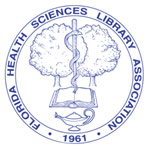The Strategic Planning and Executive Committees have identified key areas of focus for the success of the Florida Health Sciences Library Association. Responsibility for the implementation of this plan is entrusted to all active FHSLA members, including those in elected and appointed leadership positions.
I. Membership
A. Goal: FHSLA will maintain, develop, and promote active membership for the association representing all aspects of health sciences librarianship throughout the state of Florida.
B. Objectives:
- Maintain and increase membership annually.
- Develop a marketing plan each year for recruitment and retention of members.
- Obtain membership directories of professional organizations, library schools, student organizations, and other potential members from within the state of Florida on an annual basis and extend a membership invitation to them.
- Promote becoming a member of FHSLA in conjunction with FHSLA Annual Meeting marketing materials.
- Promote becoming a member of FHSLA to allied organizations, library schools, and new hires at health science libraries.
- Facilitate the FHSLA Ambassador-at-Large program for first-time attendees to the FHSLA Annual Meeting. Upon check-in at conference, conference registration personnel will solicit volunteer Ambassadors to reach out to first-time meeting attendees (as identified by their name tags) to extend a special welcome and to facilitate introductions and networking.
- Encourage attendance and participation in the FHSLA Annual Meeting to members and non-members alike.
- Increase and promote involvement and networking of FHSLA members.
- Invite new members to identify and join committees of interest.
- Use website, email listserv, social media, newsletter, membership renewal notices, FHSLA Annual Meeting, and other platforms of communication to publicize activities of committees and solicit membership involvement.
- Include activities at the FHSLA Annual Meeting that encourage collaboration and networking among the FHSLA membership and address specific needs of current and active members.
II. Professional Development
A. Goal: Provide support throughout the career continuum of the membership through FHSLA activities.
B. Objectives:
- Facilitate discussions of emerging topics of interest to the profession via the FHSLA Annual Meeting, website, email listserv, social media, newsletter, and other platforms of communication.
- Survey the membership as needed on areas of interest for speakers, continuing education opportunities, organizational activities, etc. Survey results may be used to help identify and plan educational and professional development activities.
- Provide opportunities for continuing education that meet the needs of the diverse FHSLA membership.
- Foster leadership opportunities by encouraging current FHSLA members to participate in leadership and committee roles within the association.
III. Collaborative Relationships
A. Goal: Develop collaborative relationships with other information and healthcare professionals and organizations.
B. Objectives:
- Consider partnerships with members of other associations and organizations in areas of mutual interest, including:
- Colleges and universities
- Hospitals and health care providers
- Community associations/organizations
- Local/State governments
- National Network of Libraries of Medicine, Southeastern/Atlantic Region (NN/LM, SE/A)
- Nonprofit associations/organizations
- Professional associations/organizations
Updated: 2016
